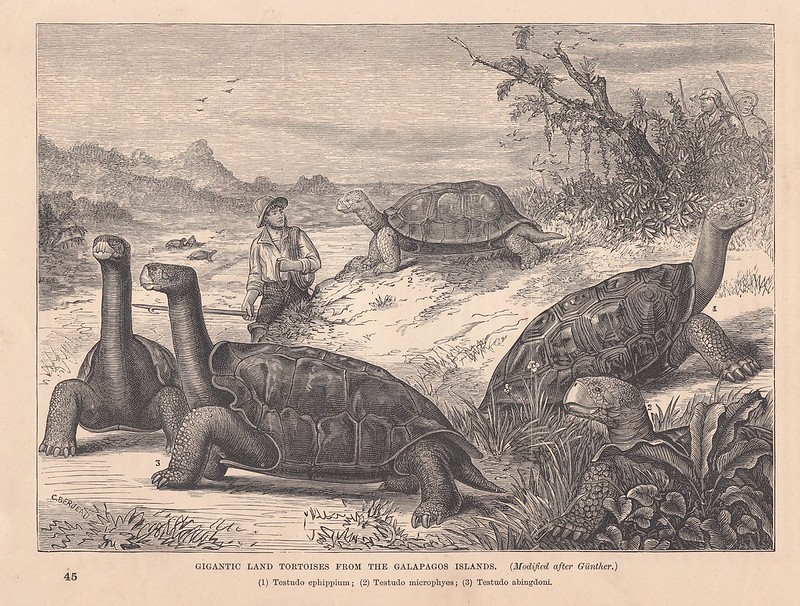This article has previously been published in Norwegian in Aftenposten Historie no. 6, 2015 and Biolog no, 1, 2014. Due to several requests, I have now also translated it into English.
Two days after Christmas in 1831 the frigate HMS
Beagle left Plymouth on a five year journey around the globe. The
purpose of the expedition was to update the British Navy's charts
using new technology. But that's not why this journey is still remembered today. Captain Robert FitzRoy also wanted a naturalist
on board, and -- quite by chance -- he commissioned the 22 year old
geologist Charles Darwin.
 |
Hunting Galápagos tortoises.
(Engraving by J. Berjeau, printed in "Cassel's Natural History" vol. 4. London, 1878.) |
According to the popular account of what followed, arriving on the Galápagos archipelago off Ecuador, Darwin became aware of
how its giant tortoises looked slightly different on each island: Flat, humid islands with low-growing vegetation produced similarly flat tortoise shells allowing for ground grazing, while higher-altitude, arid islands scattered with sparse and tall vegetation made for saddle-shaped shells allowing the grazers to stretch their necks - like giraffes - to survive.
And so Mr. Darwin was struck by the revolutionary realisation that living
beings, over the course of generations, adapt to survive in varying
surroundings and consequently branch out into what we call species.
What actually happened was, of course, not that
simple.
Nothing rules the world more than mere chance, and a long
chain of events led to Darwin's groundbreaking
discovery. One of these coincidences was his meeting with a mysterious man braving the elements on a remote island on the Equator. A man who, just like Darwin, grew up not knowing what a tortoise was at all.




